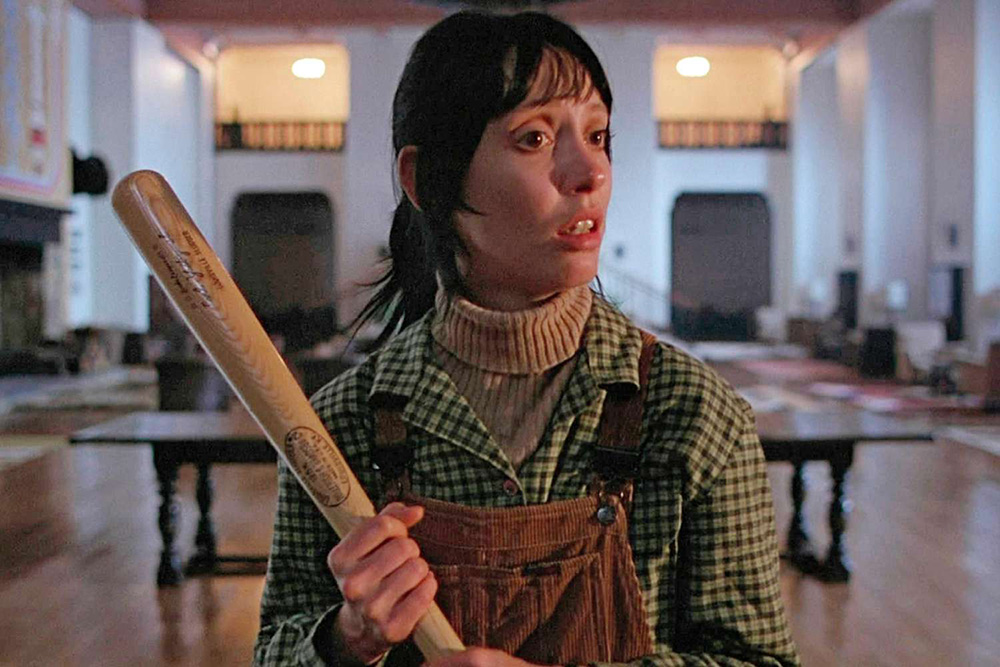The best role Shelley Duvall played was herself. No one could do it better. Plenty have tried: I recently rewatched “The Accidental Tourist” (1988), in which Geena Davis played Muriel Pritchett playing Shelley Duvall. Muriel’s a dog trainer and gig-worker—before the latter term existed. She speaks in run-on non-sequiturs, has an unplaceable accent, and a dreamy wardrobe that exudes manic pixie-hipster dream girl. In the 1970s, Duvall would’ve owned that role, generating a tiny, cult-like critical following and eschewing commercial appeal. When Davis played it, she won an Oscar.
Shelley Duvall—who died on Thursday—was never nominated for an Oscar or a Golden Globe. In her greatest performance, as Millie Lammoreaux in Robert Altman’s “3 Women” (1977), the bobbed-haired (a year earlier, as Bernice, she also bobbed her hair in Joan Micklin Silver’s “Bernice Bobs Her Hair”) delusional, hopelessly-romantic nurse, Duvall shared the ‘Best Actress’ prize at Cannes. That same year, she spoke a few unforgettable lines and slept with (“… a Kafkaesque experience.”) Woody Allen’s Alvie Singer in “Annie Hall.” Brief though her appearance was, Duvall was, of course, transplendent, a consummate scene stealer.
Duvall—A Consummate Scene Stealer
Altman had plucked her from obscurity into the starring role of his unloved and underrated “Brewster McCloud” (1970), and from there she was a core member of the director’s singular stock company. She played a mail-ordered bride turned prostitute to Julie Christie’s madame in “McCabe & Mrs. Miller” (1971), a lover-on-the-lam in “Thieves Like Us” (1974), and a roadie named L.A. Joan in “Nashville” (1975). Whether or not it was a Shelley Duvall role to begin with it became one—who else could play the restless, fickle L.A. Joan— because Duvall didn’t look, talk or act like anyone else. The collaboration with Altman, a freewheeling ideas man who took chances on non-actors (Cher, too, had her first acting role in one of his films), Duvall was often the highlight of the sprawling “Altman party” ensembles.
So, Duvall might have seemed then an unconventional fit to pair with a cold, perfectionist tactician such as Stanley Kubrick. Much has been said about Duvall’s treatment on “The Shining” (1980), to the extent that overshadows her performance in the film. And, since it’s her most famous role, it looms over her more nuanced triumphs, relegating her New Hollywood ascension to the margins. Add to it all that her private life became an item of curiosity, if not outright mockery, and the Duvall we reflect on today resembles more of a cautionary tale than an artist to cherish and celebrate.
Giving What No One Else Could Have

But, the rush to categorize is a foolish impulse, and it’s bound to sell short a beguiling performer such as Shelley Duvall. A simple classification is often a trap, a convenient crutch which allows the public to hold onto a narrative, accept it as true, lock it in a safe box and forget about until some event (i.e. death) catalyzes a broader reconsideration. Duvall was a star on her own terms, and measuring her career against a peer of that era, or, worse, against modern expectations for what a movie star should be, shrinks her offbeat yet undeniable talents to fit within the confines of an obituary.
Shelley Duvall starred in some of the best movies of any era and was missed as soon as she left the screen. But now that she’s passed, the tributes flow, and it’s hard to differentiate honest connections (Geena Davis …) and those made with the benefit of hindsight. I do see her there though, and in the “mumblecore” independent film movement, and her wardrobe or eyelashes in “Brewster” on social media and Pinterest boards. No one could have invented Shelley Duvall. Just because she deserved better from us in life doesn’t mean posthumous appreciation will compensate for that. To paraphrase Olive Oyl, in “Popeye’s” finest moment—“Punch-Drunk Love,” too—“Until the day I die, I won’t know why …” they needed me. Belated words won’t do her justice or earn her an Oscar; but already her death has spurred a better understanding of what Duvall gave which no one else could have.